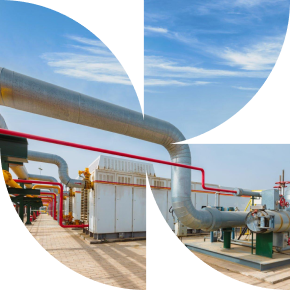
Heat Treatment for Hand Tools Industry
At JNS Heats, we design and manufacture precision-engineered heat treatment furnaces specifically tailored for the hand tools industry.
Our furnaces deliver uniform heating, energy efficiency, and repeatable metallurgical results — ensuring every tool achieves the required hardness, strength, and durability.
The Heat Treatment for Hand Tools Industry is a combination of heat, pressure, and precision control — transforming solid aluminium billets into continuous, uniformly shaped profiles that meet exact dimensional and mechanical requirements.
Overview
The performance of hand tools such as spanners, wrenches, hammers, pliers, chisels, and
screwdrivers depends heavily on their heat treatment process.
Proper heat treatment transforms the steel’s internal structure, enhancing its
toughness, wear resistance, and strength while maintaining ductility to prevent
brittleness.
At JNS Heats, our systems are designed to control temperature, time, and atmosphere
precisely — giving tool manufacturers full control over hardness profiles and
microstructure consistency.
Typical Heat Treatment Processes for Hand Tools
1. Normalizing
This process relieves internal stresses from forging or machining.
Tools are heated to a specific temperature and air-cooled to refine grain structure —
ensuring uniform mechanical properties before hardening.
2. Hardening (Austenitizing & Quenching)
The tool steel is heated to its austenitizing temperature (typically 800–900°C) and then
rapidly cooled (quenched) in oil, polymer, or air, depending on the alloy type.
This increases hardness and wear resistance, forming a tough martensitic structure
essential for cutting and striking tools.
3. Tempering
After hardening, the tools are reheated at a lower temperature (150–500°C) to reduce
brittleness while maintaining hardness.
Tempering imparts the right balance of toughness and elasticity, extending tool life and
preventing fractures under heavy use.
Case Hardening / Carburizing (Optional)
For certain tools, surface hardening is required.
In this process, tools are heated in a carbon-rich environment, creating a hard outer
surface with a tough, ductile core — ideal for impact and wear resistance.
Types of Furnaces Used
Batch Type Furnace – Ideal for small to medium-scale production
Continuous Conveyor Furnace – For high-volume, automated tool processing
Box Type Furnace – For flexibility in heating different tool sizes
Salt Bath Furnace – For precise, rapid, and uniform heating during hardening or tempering
Tempering Furnace / Oven – Controlled temperature cycles for consistent results
Each furnace is designed with energy-efficient burners, precise temperature control systems, and durable insulation materials to reduce fuel cost and ensure stable operation.
Why Choose JNS Heats
- Complete Turnkey Heat Treatment Systems
- Uniform Temperature & Controlled Atmosphere
- Energy-Efficient, Low-Maintenance Design
- Suitable for Alloy & Carbon Steel Tools
- PLC/SCADA-Based Automation Options
- Proven Performance Across Tool Manufacturing Plants
JNS Heats stands as a reliable partner to hand tool manufacturers, offering custom-designed heat treatment furnaces that enhance tool quality, extend lifespan, and reduce production costs — backed by strong technical support and after-sales service.








